This post may contain affiliate links which means we might earn a small commission if you decide to make a purchase through them (at no extra cost to you). Need more info? Click Here
Some pet lovers are unfortunately allergic to animals. If this describes you, your kids, or someone in your family it can be incredibly frustrating when you would like nothing more than to adopt a pet. If you or your kids are allergic to animal dander and fur, you might be tempted to steer clear of adopting a pet altogether. This would really be sad because pets bring so much joy into your life! However, all is not lost! There are a number of wonderful pets that are said to be hypoallergenic that you can consider if you are allergic to pets but still would like to adopt one.
Now while the jury is still out on just how hypoallergenic cats, dogs, and other mammals are, it is generally agreed that the following breeds affect allergy sufferers less.
Things To Consider Before Adopting A Hypoallergenic Pet
Even though the pets on this list are said to be hypoallergenic it is always a good idea to investigate the pet thoroughly before adopting, especially if you or your kids suffer from severe allergic reactions. If at all possible, try to spend some time with the type of pet you are considering adopting. If you are considering one of the hypoallergenic dogs or cats listed here then ask the breeder if you can come over for some snuggles and cuddles before committing to bringing the pet home. The breeder will most likely also be able to give you some excellent advice about just how hypoallergenic the breed truly is.
What Causes Allergies In Kids And Adults?
Pet allergies in kids and adults are caused by animals who shed dead skin cells (dander) with some people also being allergic to the proteins that are found in certain pets’ saliva, urine, and feces. Unfortunately, these animals include most mammals with fur such as cats, dogs, guinea pigs, and rabbits.
Allergies occur when your immune system reacts to a foreign substance such as pollen, mold or pet dander.
Mayo Clinic | Pet Allergy
Your immune system produces proteins known as antibodies. These antibodies protect you from unwanted invaders that could make you sick or cause an infection. When you have allergies, your immune system makes antibodies that identify your particular allergen as something harmful, even though it isn’t.
When you inhale the allergen or come into contact with it, your immune system responds and produces an inflammatory response in your nasal passages or lungs. Prolonged or regular exposure to the allergen can cause the ongoing (chronic) airway inflammation associated with asthma.
Depending on how severe the allergies are simply adopting a smaller pet might be the solution to the problem. After all, a smaller pet means less fur and less dander. However, keep in mind that while no dogs, cats, birds, or rodents are completely hypoallergenic, the pets mentioned here are believed to produce far fewer allergens than other “normal” breeds.
Hypoallergenic Dogs
Maltese
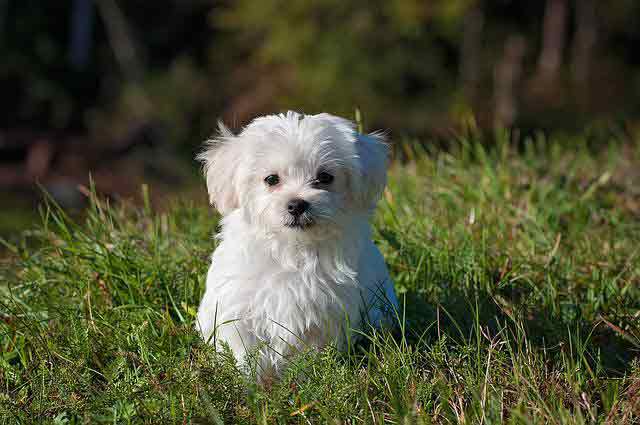
Image by Pezibear from Pixabay
| Height | 10 Inches / 26cm |
| Weight | 4-5 Pounds / 2-3kg |
| Shedding | Non-Shedding |
| Lifespan | 10 – 15 Years |
The Maltese is a very cute little dog that is very intelligent, loving, trusting, playful and energetic. They love their humans and enjoy spending time cuddling so, if you have allergies but would love a dog to cuddle, the Maltese might just be the dog for you!
Maltese are said to get on well with people of all ages but they could be a little bit snappy with younger kids if they haven’t been properly socialized so puppy training and socialization classes are always a great idea!
Bedlington Terrier
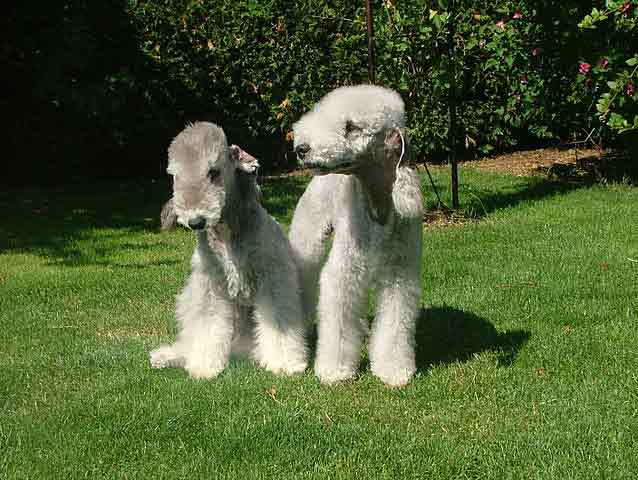
David Owsiany, CC BY-SA 4.0, via Wikimedia Commons
| Height | 16 Inches / 41cm |
| Weight | 20 Pounds / 10kg |
| Shedding | Low-Shedding |
| Lifespan | 12 – 15 Years |
The Bedlington Terrier is famous for looking almost like a lamb with its gorgeous white fur! The breed was originally bred to hunt rabbits in North Britain and it is courageous and energetic! It is also a very loyal breed which makes it a great companion and most people agree that it is good with kids.
Although the Bedlington Terrier lives peacefully with other pets in the home it does tend to chase small animals outside when its hunter instinct kicks in. Because it loves to chase it is important that it gets enough exercise.
Bichon Frise
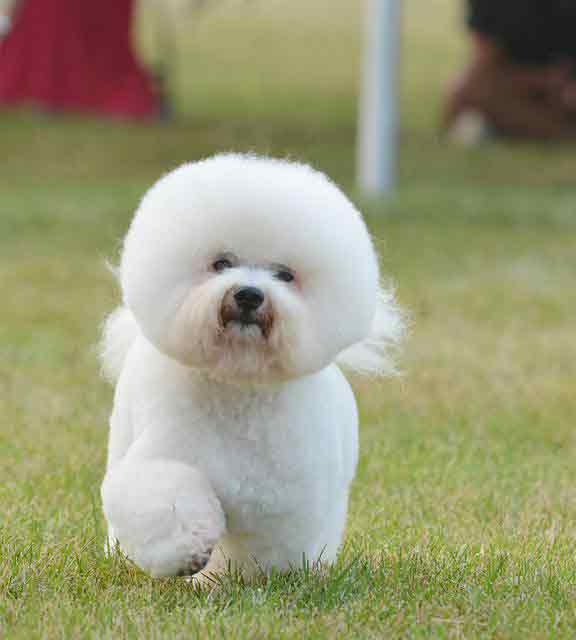
Image by ZeeCee from Pixabay
| Height | 10 Inches / 25cm |
| Weight | 10 Pounds / 5kg |
| Shedding | Low-Shedding |
| Lifespan | 12 – 15 Years |
The Bichon Frise is another very cute little dog that is considered low-shedding. It is a very affectionate, gentle, and playful dog that loves to be the center of attention! Generally, Bichon Frise dogs get on well with other dogs and people but just like any dog socialization is essential.
Kerry Blue Terrier
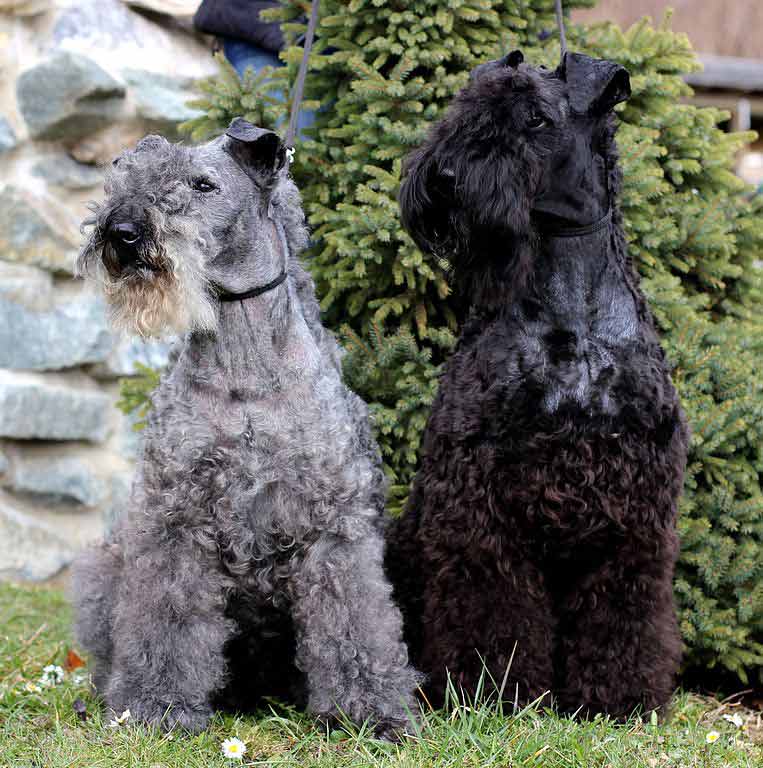
Hilarmont (Kempten), CC BY-SA 3.0 DE, via Wikimedia Commons
| Height | 19 Inches / 47cm |
| Weight | 35 Pounds / 16kg |
| Shedding | Low-Shedding |
| Lifespan | 13 – 15 Years |
The Kerry Blue Terrier is a medium-sized dog that is known to be a fearless watchdog and faithful companion to his human family.
When they are born their coats are black but their final color usually develops at the age of about 18 months. They are easy to train and love water but be aware that they can be a little bit temperamental and may snap at other dogs or chase other small animals such as cats.
Afghan Hound
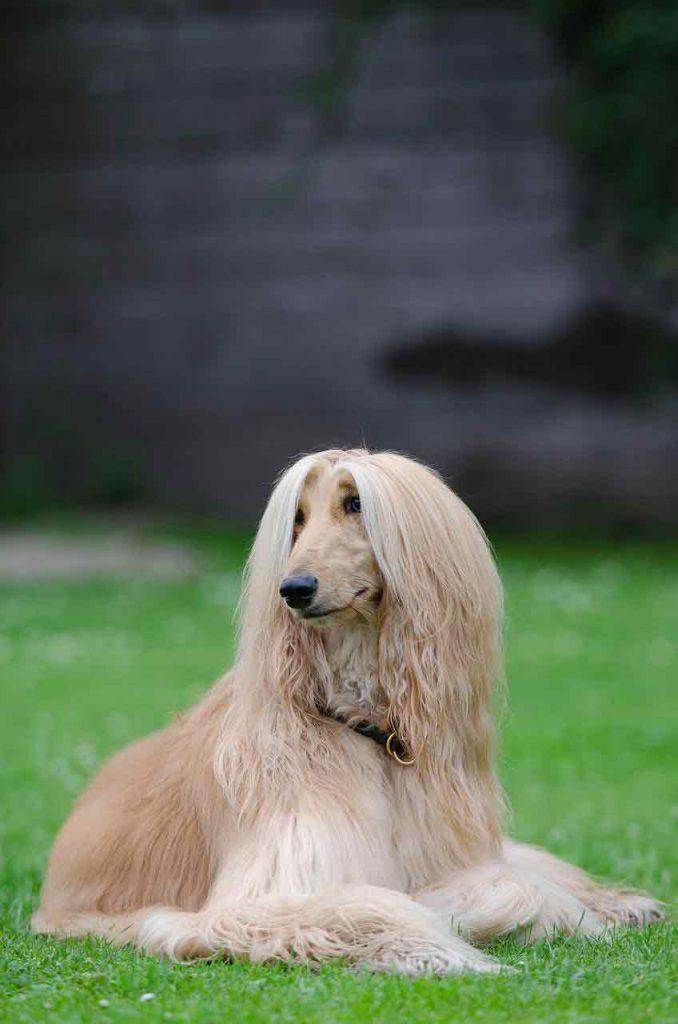
Image by Katrin B. from Pixabay
| Height | 28 Inches / 72cm |
| Weight | 70 Pounds / 30kg |
| Shedding | Low-Shedding |
| Lifespan | 12 – 14 Years |
The Afghan Hound is an absolutely gorgeous dog that is known to be hypoallergenic. They love to run and are incredibly fast reaching up to speeds of 40mph! They are strong-willed, intelligent and independent so they can be a bit stubborn when it comes to training.
Afghan Hounds need regular grooming and brushing so that their coats don’t become matted. While they are happy to veg out on the couch with you they do need regular exercise so that they don’t get bored. Because they were originally bred to hunt they will sometimes chase smaller animals if they aren’t socialized well.
Other Hypoallergenic Dog Breeds To Consider
According to the American Kennel Club there are a few other hypoallergenic dog breeds you could consider:
- Affenpinscher
- American Hairless Terrier
- Barbados da Terceira
- Bolognese
- Chinese Crested
- Coton de Tulear
- Giant Schnauzer
- Irish Water Spaniel
- Lagotto Romagnolo
- Lowchen
- Miniature Schnauzer
- Peruvian Inca Orchid
- Poodle (Miniature, Standard, Toy)
- Portuguese Water Dog
- Russian Tsvetnaya Bolonka
- Soft Coated Wheaten Terrier
- Standard Schnauzer
- Xoloitzcuintli
- Yorkshire Terrier
Hypoallergenic Cats
Balinese
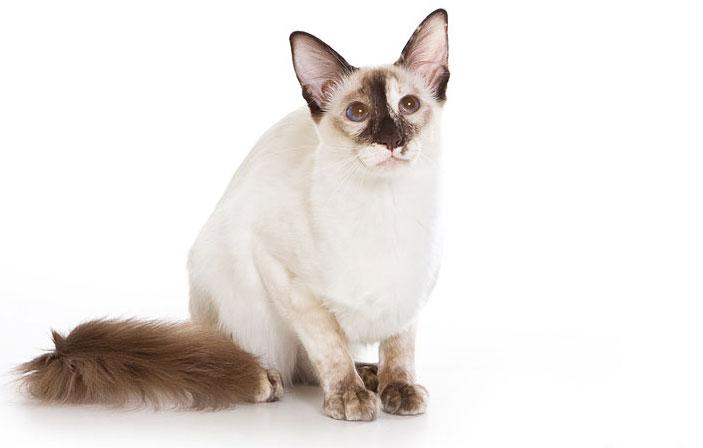
Balinese cats are a hypoallergenic cat breed that has longer fur
Фотограф:Анна Утехина, CC BY-SA 3.0, via Wikimedia Commons
The Balinese is a very beautiful long-haired cat breed. It has been found that Balinese cats produce a lot less of the protein that causes cat allergies. Balinese cats come in many beautiful colors and are said to be very affectionate, talkative, and playful. The Balinese get on well with kids and people of all ages and is usually very loving towards their human family. They also get on well with other animals if introduced correctly.
Cornish Rex & Devon Rex
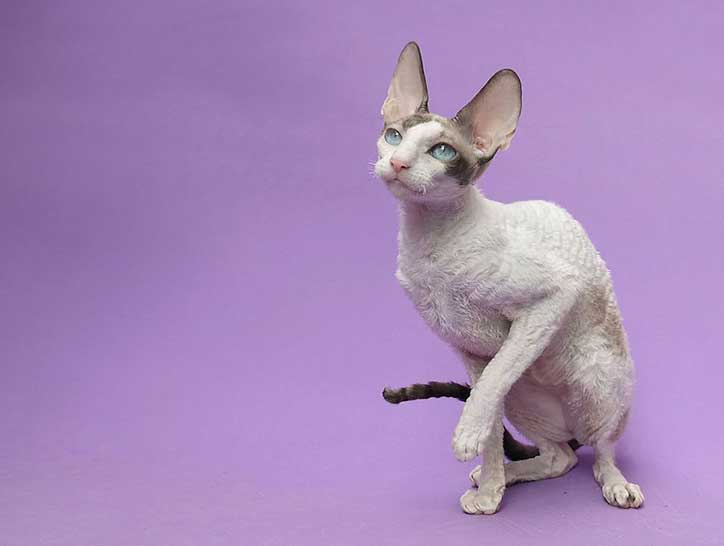
The Cornish Rex only has one soft undercoat layer of fur so they don’t shed a lot
Alexandre Gonçalves, CC BY-SA 4.0, via Wikimedia Commons
Although the Cornish Rex and the Devon Rex can sometimes look like they are hairless, they do have very fine fur. While normal cats usually have 3 layers of fur the Cornish Rex only has one, the very soft undercoat. Because they only have the undercoat layer of fur, they shed a lot less and many people who suffer from allergies find that they aren’t affected by them.
The Devon Rex on the other hand has all three layers of coat and has almost a pixie-like appearance. While they do have all three layers of fur they are still considered one of the best cats for allergy sufferers.
Sphynx
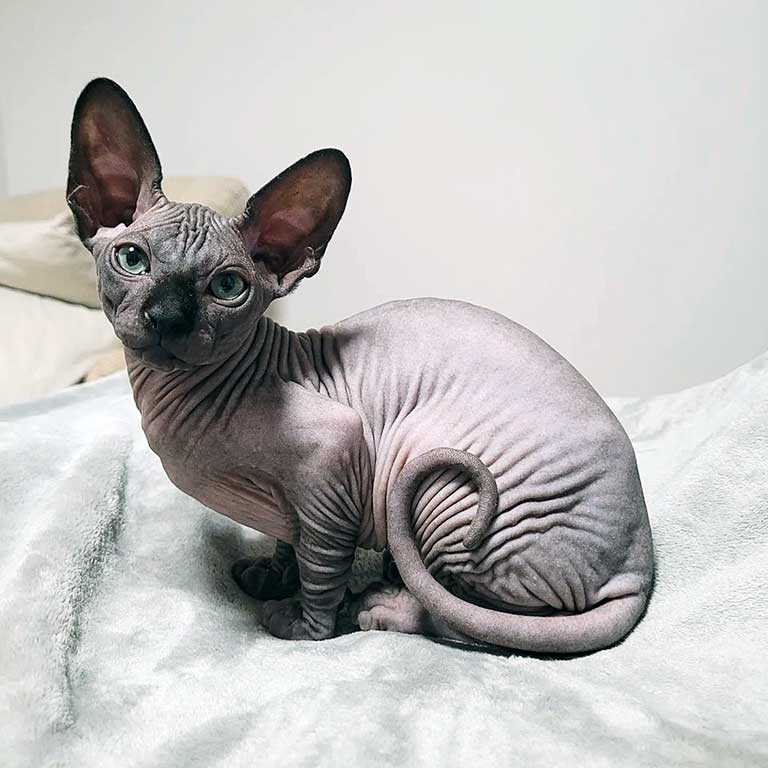
Sonnqor, CC BY-SA 4.0, via Wikimedia Commons
The Sphynx is said to be one of the most allergy-friendly cats you could choose. This is because they have very little to no fur and the fur they have is very fine and short. In fact, most Sphynx cats look bald! Just like the Balinese cat they come in many different colors and are very friendly and gentle. They love their human family and generally get on well with people of all ages.
Other Hypoallergenic Cat Breeds To Consider
According to Cat Breed List, there are a couple of other breeds you can consider:
- Oriental
- Siamese
- Bengal
- Russian Blue
- Siberian
- Burmese
- Ocicat
- Balinese
- Javanese
- Donskoy
- Ukrainian Levkoy
Rabbits
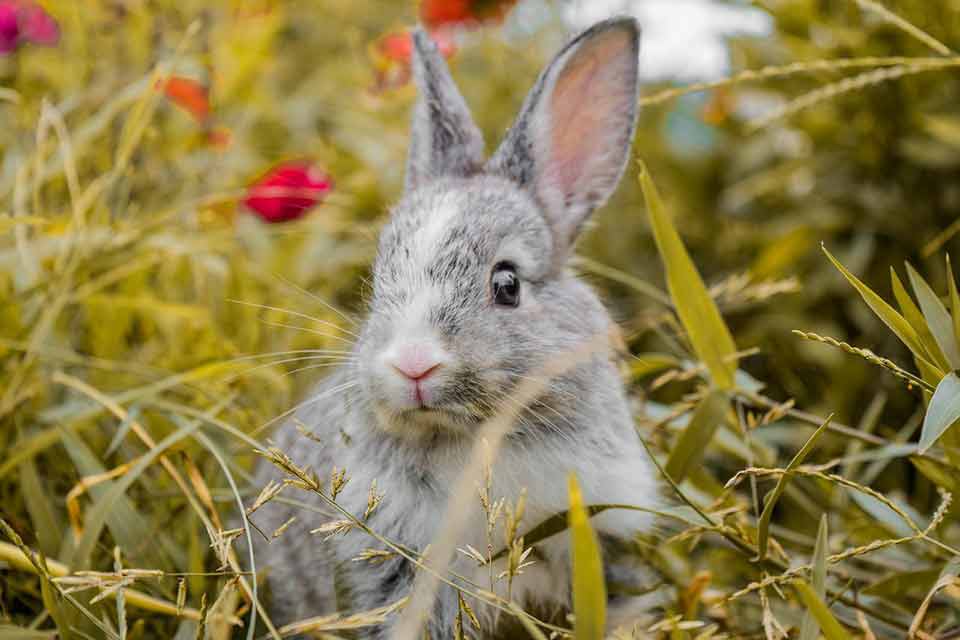
Image by Pppoppy from Pixabay
Just because you might be allergic to dogs and cats doesn’t necessarily mean that you are allergic to all cuddly pets! In fact, a study conducted by the Journal of Korean Medical Science found that “severe respiratory allergic reactions to rabbits in households are unusual”.
Although rabbits are common domestic pets, the development of allergic asthma and/or rhinitis attributable to rabbits at home is unusual, and few studies have evaluated the allergenic relationship between rabbits and other pets such as cats and dogs.
Journal of Korean Medical Science
The general consensus is to try to stay away from long-haired rabbit breeds such as Angora rabbits if you suffer from allergies. Your best bet is to look at a breed like the Rex rabbit family. Rex rabbits don’t shed as much and they don’t produce as much dander as other rabbits. Their coats are incredibly soft and dense. Rex rabbits, and especially the mini-Rex are said to be very loving and even-tempered so they are a great choice for kids as well.
Guinea Pigs, Hamsters, Rats & Mice
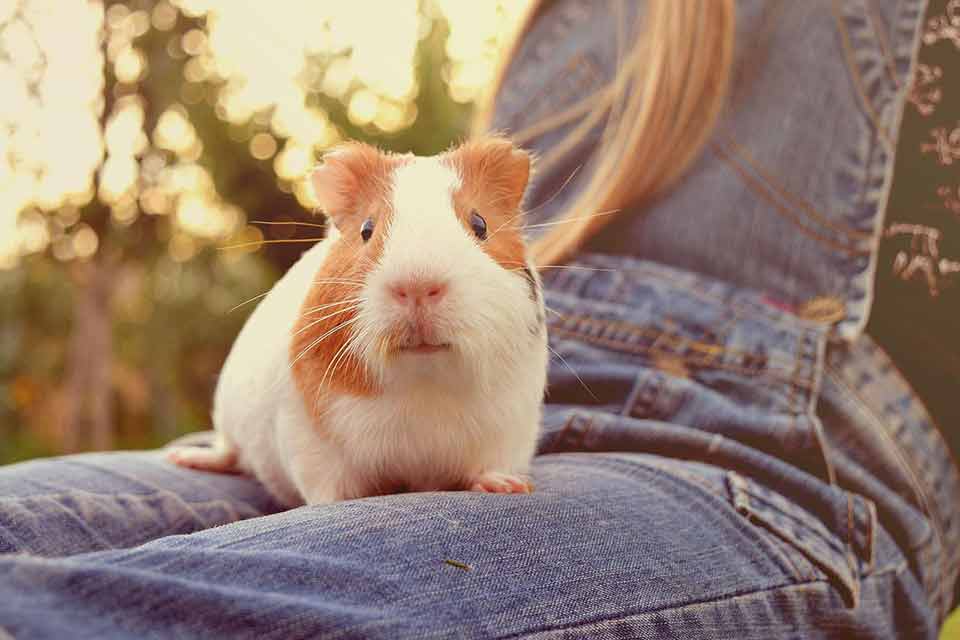
Image by Livia Novakova from Pixabay
Many people who are allergic to cats and dogs have found that they are okay with guinea pigs, hamsters rats, and mice. Because of their small size, these furry little mammals produce less dander than bigger animals. Also, because they generally live in cages they don’t freely roam the home spreading allergens.
An added bonus is that rats especially are very cuddly and affectionate, so they make really great pets for allergy sufferers who still would like a pet that likes to cuddle. If you are a bit unsure about whether having rats as pets are a good idea, we put together an article with many frequently asked questions about rats : Ever Thought Of Keeping Rats As Pets – 25+ Helpful FAQs To Help You Decide. We also have a rat care guide that includes everything involved in adopting rats as pets, so you know what is involved before making a decision.
Another great option to consider if you are still worried about fur is either hairless guinea pigs (skinny pigs) or hairless rats. These little guys look bald but they aren’t really completely hairless. They have more of a fuzzy fur. Because they are almost bald there are even fewer allergens around to cause allergies. Just like rats, Guinea Pigs love attention so they are a good option for allergy sufferers who want a cuddly pet.
Birds
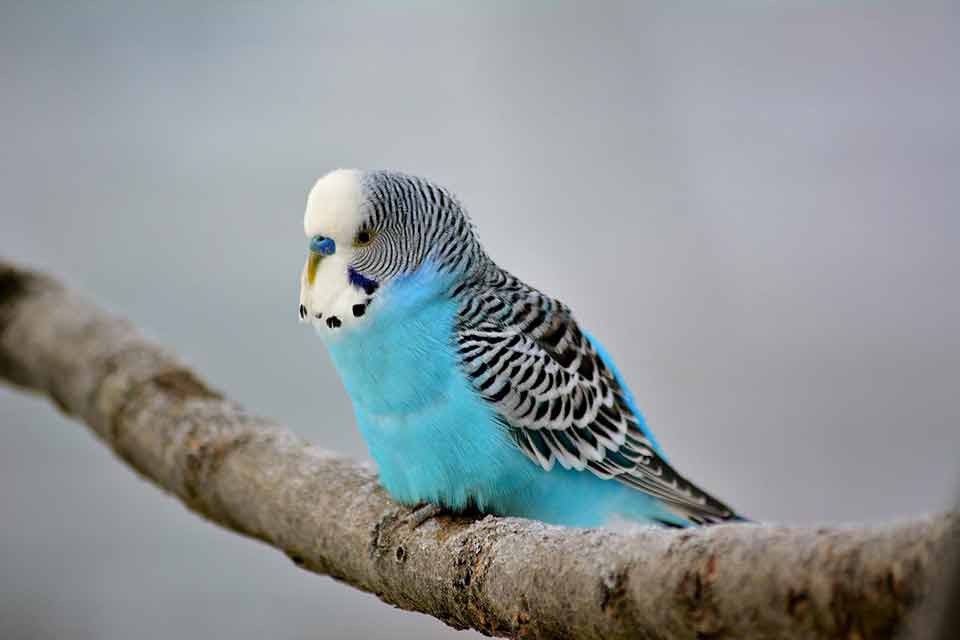
Image by jggrz from Pixabay
While pet birds also produce dander, many allergy sufferers find that they can happily live with birds even though they are allergic to cats, dogs, and other small mammals. If you would like to adopt a bird then smaller breeds are probably your best bet. These could include budgies and cockatiels which don’t shed very much dander. As with any pet you have that has a cage it is very important that your pet bird’s cage is kept really clean to avoid any unnecessary allergens.
Reptiles – Lizards, Snakes, Turtles
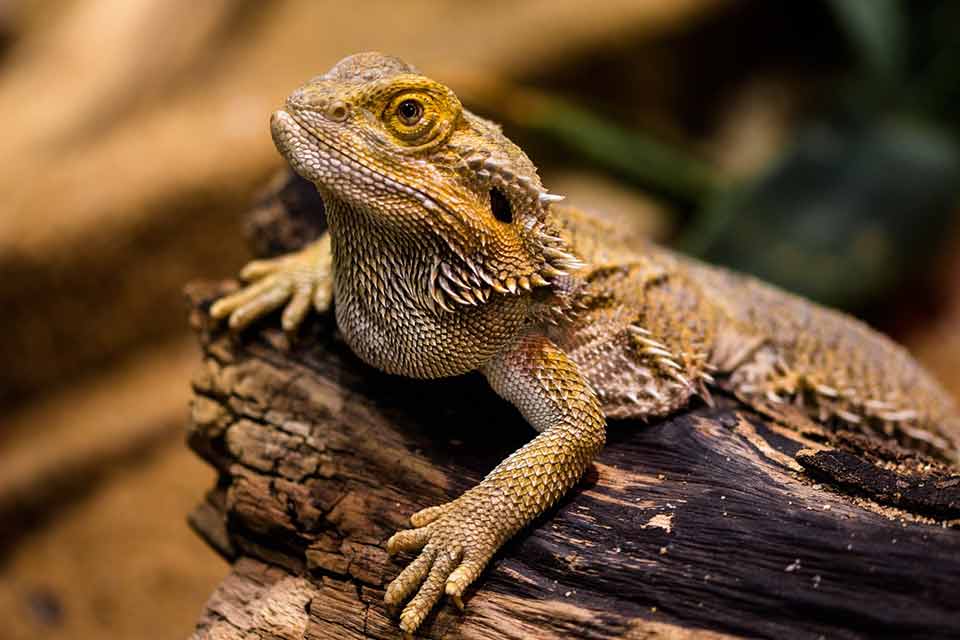
Image by blende12 from Pixabay
Members of the reptilian family are great options for people who suffer from allergies. Because they don’t have any fur they don’t have dander so they don’t trigger allergic reactions. Bearded dragons are a really great choice if you would like a reptile pet that is still very interactive and fun.
Fish
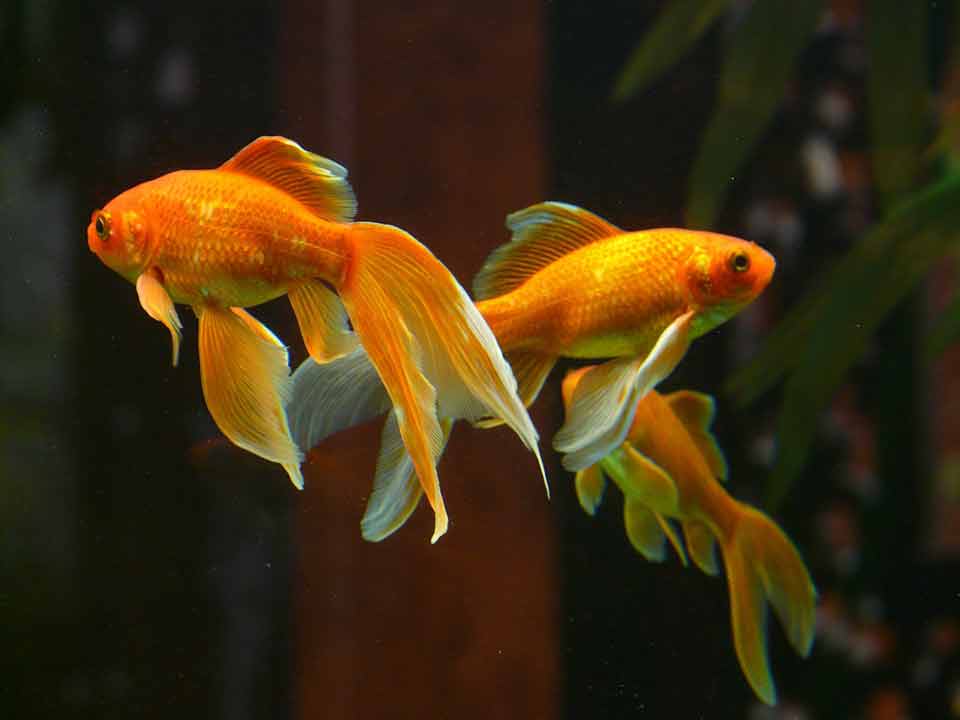
Image by Hans Braxmeier from Pixabay
Although not cuddly, fish could be a great allergy-free pet for your family and also make a great first pet for kids. No airborne allergies or physical contact with the fish so no allergies! Goldfish are a great choice if you don’t want to worry about water temperature as they don’t mind cold water. They also are very interactive and friendly.
Conclusion
Even though allergies are hugely annoying and affect so many areas of your life it is still possible to have a pet even when you have allergies. Lots of allergy sufferers have had success with the pets mentioned above and have managed to find pets to suit them and their families. We would love to know, do you have a pet that doesn’t affect your allergies? Let us know in the comments section below!





